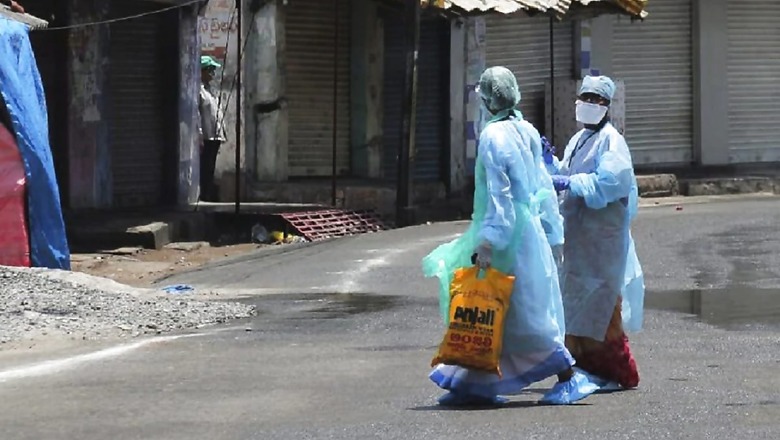
views
If one lakh ASHA (Accredited Social Health Activists) workers had not risked their lives fighting Covid-19 everyday for the past four months, Veena Gupta, the state president of the Uttar Pradesh unit of Asha Karamchari Union, says, “this state would have collapsed under the weight of its own dysfunctional health mechanism”.
This work, Gupta adds, was done despite physical assaults on the workers during the initial days over rumours that the deadly pandemic was being spread by them. It went on despite Asha workers dying in the line of duty, sometimes, it seemed, after contracting the novel coronavirus. But the workers have now decided to register their protest, not just against their hostile working conditions but against the abysmally low allowance of Rs 1,000 per month, which does not even cover the costs of sanitisers or protective gear. They have announced a three-day strike starting from Friday.
“It is because of the door-to-door surveys done by Asha workers that there exists data on the Covid-19 related infections. But despite being out in the field all day, working in containment and red zones, all we get is Rs 1,000 Covid-19 allowance per month. We don’t get any protective equipment, we don’t get any vehicles, nobody even offers us water or allows us to use their washrooms. How are we expected to work under such conditions, day after day?” Gupta says.
Not only is the allowance given to Asha workers incommensurate with their ground work, even the ex-gratia announced for those who lose their lives while working isn’t forthcoming.
“The union government announced Rs 50 lakh to the family of Asha workers who get infected with the virus and die but the authorities never get us tested. No post-mortem is done of those female workers who die from Covid-19 like symptoms, so obviously no ex-gratia is being disbursed. There are workers who have died on roads, as they were trying to reach a village on foot, hit by speeding cars. But nobody has asked about the well-being of these workers,” Gupta adds.
The average day for an Asha worker begins at 8, when she leaves her home on foot or taking whatever mode of transport is available, to reach the village for which she has been assigned work. The workers were till recently compiling data on movement and health conditions of migrant workers. These days they are mostly compiling data on health conditions of those living in red and containment zones in order to do contact-tracing of those who came in touch with Covid-19 positive people. The work continues well past lunch, and requires them, at an average, to cover 5 to 6 km on foot, all during which they face challenges in finding a place to take rest from the intense heat and in answering the call of nature. After returning home, they have to continue working on arranging data in the set format.
“It has become a pattern for the government, whose health systems are in a state of collapse, to push the basic work that they cannot do, on to women. It’s not just Asha workers, there are Pashu Sakhi, Bank Mitra, profile created for women to do work that government departments cannot do, and to glorify the work and call them “volunteers” while denying them salaries and social securities that come with full-time jobs,” according to Jashodhara Dasgupta, policy advocate and a senior advisor at the non-profit SAHYOG.
Dasgupta said that the Asha workers had been doing the same jobs for 15 years in hope that one day their jobs would be regularised, they would get fair wages, social protection and decent working conditions.
“By cleverly off-loading and outsourcing its work to Asha workers, the government has been preventing all these women from entering the formal workforce. A gendered perspective is being imposed, as we have seen in the case of Anganwadi workers, who, even after their 25 year-long struggle to get their basic due, still remain half-paid. It’s an exploitative job, which these workers have been doing for the past 15 years without any career growth or incentives,” Dasgupta adds.
Lakhs of Asha workers across the country are demanding a basic pay of Rs 21,000 per month, regularisation at jobs, vehicles to reach distant villages and better working conditions. On Sunday Asha workers across the country will observe a Satyagrah for it.




















Comments
0 comment